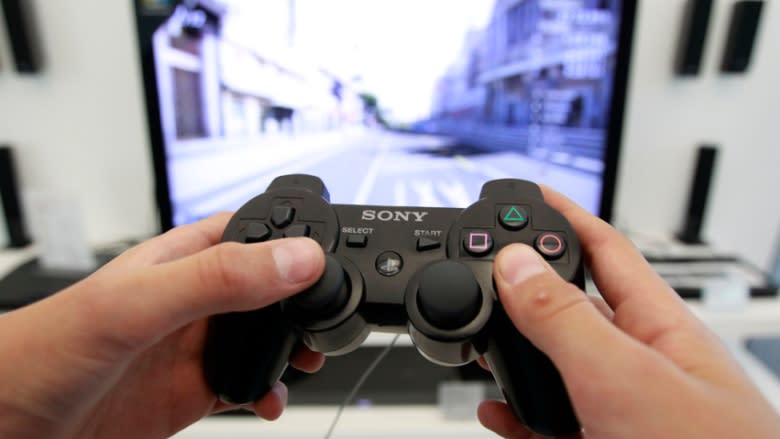How this young Islander beat his video game addiction
When Brett Cheverie was a teenager, he says he was playing video games as much as 40 hours a week.
He'd be in his bedroom playing Crossfire until 4 a.m. Then, exhausted, he'd get up and go to school.
"I was getting somewhere between two or three hours of sleep a night."
Now 25, Cheverie looks back and says there's no question: he was addicted to video games.
"I didn't realize what I was doing because part of an addiction is a sort of complacency with what you are doing," he said. "You don't notice what you are doing is wrong because you rationalize it to yourself."
The World Health Organization recently declared compulsive video gaming qualifies as a mental health condition. It's categorized as an addictive behaviour disorder, and WHO estimates about three per cent of gamers are affected.
'A huge issue for families'
Charlottetown social worker Darlene Lund, who works with people with different addictions, says the overuse of technology in general has been "a huge issue for a lot of families."
"A lot of parents are saying [their kids] have lost interest in other things they used to be interested in, and they don't want to go to school, they just want to be in their rooms."
She said social isolation can often lead to other mental health issues.
"Just that sense of purpose and sense of belonging and sense of meaning that humans have in life and there's just a loss in regard to that social connection. We're social beings, so it's a huge concern I think."
She said an addiction to video games — or technology in general — can affect adults as well as kids. She said you need only look at how people are attached to their smartphones. But like all addiction, it can be overcome. Her simplest advice is to schedule time away from technology the same you would schedule a dentist appointment.
"Having a variety of things in life brings about often more joy and a more meaningful life."
Cheverie said when he was a student at Charlottetown Rural, his marks were good enough that it was difficult for his parents to justify taking video games away completely. But he said when it came to punishment, it was always the first thing to go.
"Any sort of discipline as a child for me was to go outside and play," he said. "I was a very introverted child."
Cheverie said he eventually had an "intervention" with his parents and school guidance counsellor, but he says a "bit of maturing" and quitting "cold turkey" were what helped him beat the addiction.
"I stopped playing video games completely for a period of time in order to break the cycle," he said. "It took a lot."
Four new hobbies
He said was important to pick up other hobbies to fill the void left from video gaming. He started hiking and rock climbing, and learned to play the guitar and piano.
"So I picked up four new hobbies to take up the amount of time I was doing with one hobby with gaming."
He now plays video games about three to five hours a week, he said, and generally sticks to one game — Super Smash Brothers. He hosts tournaments for gamers once a week in Charlottetown. He said video gaming can be a fun, healthy activity if it's kept in check.
"Gaming has been a really positive part of my life once I got past the addiction part because gaming has been both the best and the worst part of my life."
Cheverie said he is always willing to help people who are worried they might be becoming addicted.
"It seems to be an issue with young men today," he said. "It's a problem. It really is and I'm glad the World Health Organization is recognizing it as an actual disorder but mainly only because that means that people who suffer from it could potentially have easier access to the help that they would need."
More P.E.I. news



